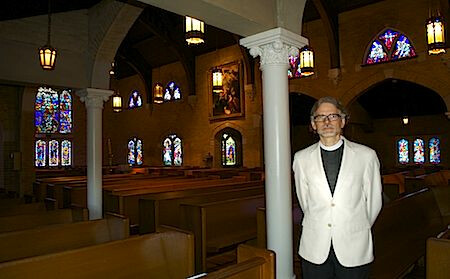Esther: Idolatry

As we are working through Esther in Morning Prayer, I have been reading Yoram Hazony’s fresh commentary, God and Politics in Esther (Cambridge University Press, 2016). A principal character in the story is Mordecai, the Jewish cousin of Esther who had reared her, an orphan, as his own daughter. When the king promotes Haman to preeminence over all his other counselors, the order goes out that all people should bow and prostrate themselves before him. Mordecai refuses to do so. Why?
Hazony, in his commentary, notes that Jews are forbidden to bow down before idols. Thus the text raises the question whether some sort of idolatry is going on in the king’s promotion of Haman. That is to say, it is not obviously idolatry, but Mordecai’s refusal to bow before Haman causes us to wonder if somehow political tyranny (which is what was going on) is idolatry.
To get at this at all requires an understanding of why idolatry is such a bad thing throughout the Old Testament, indeed, perhaps the worst thing of all. Let me sketch Hazony’s interesting argument on this.
Idolatry involves the appeasement of gods or humans supposed to be gods so that some good will come about. The evil in idolatry appears in what the appeasement required: sometimes food and wine, sometimes parties, sometimes sacrifice of produce and beasts, sometimes orgies and bestiality, and sometimes “human blood . . . the hearts extracted from living men . . . children sacrificed by their parents to the beating of drums.”
Why were such evils practiced? Because it was seen that, in exchange, people received something good. Idolatry “was actually the result of a positive human desire to ascertain the causes of suffering and ameliorate them”; it was “the first intellectual endeavor of humanity as it rose above the immediate and visible in search of effective means for treating its afflictions.” Kill a man, and the rain will come. So they did, and it did.
Yet whatever truth there was in the connection of meeting the idol’s demands and receiving its benefits, that truth was only local and particular. The idol-worshiper must close his eyes to wider considerations and stick to a “severely limited perspective.” The idol-worshiper lacks humility; he thinks “the local truth of one’s own perspective comprises truth as a whole.”
For the terrible truth of idol-worship is that it doesn’t ameliorate suffering overall but in fact makes the world much worse. The gods of such a world are always, in the end, anti-human.
Hazony says that ancient idolatry becomes, in modern currency, moral relativism, in which “human suffering is governed by local truths.” This is what Israel rejected through her prophets. They, the prophets, “insisted that the appearance of evil is governed by universal principles.”
This is why Herbert McCabe calls the Ten Commandments the great “atheist manifesto.” Hear, O Israel—there are no gods! There is, instead, one God, and one humanity, and justice is universal as it applies to all people everywhere. Hazony: “righteousness consists first of seeking the good of man—respecting his life, family, property, dignity, right to respite, right to privacy, and right to justice”—a paraphrase of the last seven of the Ten Commandments.
So, back to Mordecai’s refusal to bow to Haman. In the king’s tyrannical rule, people were bound to do whatever the king desired. Such tyranny can thrive only when people have moral amnesia. Mordecai refuses to bow because he remembers, for instance, that murder is evil. Idolatry is about forgetting the human good. Mordecai remembers.

